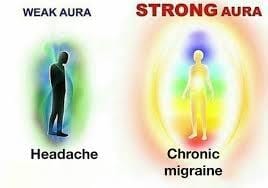- More Relief. Less Medication.
- Posts
- 🧠 Are Your Migraine Medications Causing Your Symptoms?
🧠 Are Your Migraine Medications Causing Your Symptoms?
Migraine medications carry the potential to be both your friend and foe...

Your hub for natural migraine management. More Relief. Less Medication.

Hey Migraine Mentees 👋
Today’s newsletter takes 4 minutes and 27 seconds to read, but if you’ve only got 60 seconds, here’s what you need to know:
Migraine medications are a game changer for many, but not for all…
Specific migraine medications carry risks of causing nutrient deficiencies…
Write down all of your symptoms and double check your medication side effects to see if there’s a chance your medication is causing additional symptoms…
Medications work best in the presence of a healthy diet, lifestyle, and adequate sleep…
👀 You’re going to be an expert in managing your medications after today’s reading.
Let’s get into it!
🧠 The Migraine Mentors
First time reading?! Sign up HERE.

In This Week’s Edition…
🥡 Weekly Take-Out
Meme of The Week - 🌟 Your Aura Lights Up My Life…
📸 Weekly TikToks
Migraine Medications and Inflammation
Nutrient Depletions and Migraine Medication
🔈️ The Migraine Mentors Minicast - Podcast Series
Why Managing Your Medication Matters
📜 This Week’s Top Article
Are Your Migraine Medications Causing Your Symptoms?
🍴 Migraine-Friendly Recipe of the Week
Quinoa and Roasted Vegetable Bowl

🥡 WEEKLY TAKE-OUT
Meme of The Week


🥡 WEEKLY TIKTOKS
Migraine Medications and Inflammation
@drerikreis #migraine #migrainerelief #pain #vestibularmigraine #brain #headache #headaches #migraines #chronicinflammation #chronicsymptoms #chronici... See more
Nutrient Depletions & Migraine Medication
@headache_whisperer #migraine #migrainerelief #headache #migraines #medication

🗞️ MIGRAINE MINICAST
Why Managing Your Medications Matters
💊 Medications often seem like the first line of defense—but did you know that relying on them too heavily can actually worsen migraine symptoms over time?
While prescriptions can be crucial for relief, excessive use of certain migraine drugs like SSRI’s and CGRP-agonists may lead to more frequent or intense attacks, creating a vicious cycle that’s hard to break…
🎧️ In this week’s episode, we uncover the hidden risks of medication overuse, explain how it can escalate migraine severity, and outline practical ways to manage attacks without becoming too dependent on prescriptions.
You’ll also learn about more holistic, research-backed approaches that can help you navigate migraines with greater balance and confidence.
👇️ Click the link below to check it out! 👇️

📜 TOP ARTICLE
Are Your Migraine Medications Causing Your Symptoms?
As someone struggling to manage migraine symptoms, it’s frustrating to run into road blocks with medications that were supposed to help, but didn’t…
You’re not alone on this journey!
While certain medications can help manage symptoms, they often address only part of the problem… And they’re not addressing the root causes of your migraine attacks.
Interestingly, many migraine medication drugs also influence nutrient absorption, potentially worsening migraine symptoms, along with other symptoms commonly associated with chronic pain.
We wanted to highlight five common migraine medications and discuss the deficiencies they may cause…
So here we go!
NSAIDs (Aspirin) & Vitamin C/Iron
Key Point: Research shows aspirin can reduce vitamin C absorption, which may also affect iron uptake. Since vitamin C supports tissue repair and immunity, low levels could leave you more vulnerable to migraine triggers.
Valproate (Depakote) & Carnitine
Key Point: Studies indicate valproate depletes carnitine, a key player in mitochondrial energy production. Healthy mitochondria are vital for managing migraines, so depleted energy reserves can contribute to more frequent or intense attacks.
ACE Inhibitors & Zinc
Key Point: ACE inhibitors may lower zinc levels in the blood while increasing how much is excreted. Zinc is crucial for immune function and tissue repair—deficiencies can compromise your body’s resilience to migraine triggers.
Diuretics & Bone Density
Key Point: Loop diuretics (LDs) may disrupt calcium balance, potentially raising the risk of bone-related issues. Though thiazide diuretics (TDs) appear less harmful, maintaining proper mineral levels remains important for overall health and stress management.
Antidepressants & Vitamin D/Calcium
Key Point: Certain antidepressants have been linked to potential vitamin D and calcium deficiencies, though more research is needed. These nutrients help regulate cellular functions tied to migraine management.
🤔 What Should You Do?
Monitor Nutrients: Regular blood tests can catch deficiencies early.
Eat Smart: Include nutrient-dense foods—leafy greens, lean proteins, quality fats, nuts, seeds—to help offset losses.
Stay Hydrated: Water + electrolytes is often a winning combination for making sure hydration levels stay elevated and nutrients are available for use.
Keep Healthy Habits: Proper sleep, getting daily physical activity, managing stress, and keeping healthy relationships is crucial for success.
Consult Professionals: Before changing medications or adding supplements, discuss your options with your healthcare provider.
Migraines are complex, and medication alone may not be the full solution… So if you’re still struggling with symptoms, it might be time to look for other options!
By understanding how nutrient deficiencies can develop, you’ll be better equipped to pursue a balanced, comprehensive approach to finding treatment and long-term relief.

🍴MIGRAINE-FRIENDLY RECIPE
Quinoa and Roasted Vegetable Bowl

🥣 Ingredients
1 cup quinoa, rinsed
2 cups water or low-sodium vegetable broth
1 medium zucchini, diced
1 bell pepper (any variety), diced
2 medium carrots, sliced
2 tablespoons olive oil
Salt and pepper to taste (adjust according to tolerance)
Fresh herbs (such as parsley or cilantro) for garnishing
📖 Instructions
Preheat the Oven
Preheat your oven to 425°F (220°C).
Cook the Quinoa
In a medium saucepan, combine the rinsed quinoa and water or vegetable broth. Bring to a boil, then reduce the heat to low, cover, and simmer for about 15 minutes, or until the quinoa is fluffy and the liquid is absorbed. Remove from heat and let it sit covered for a few minutes.
Prepare the Vegetables
On a baking sheet, spread the diced zucchini, bell pepper, and sliced carrots. Drizzle with 2 tablespoons of olive oil, and sprinkle with salt and pepper (to taste). Toss to coat the vegetables evenly.
Roast the Vegetables
Roast the vegetables in the preheated oven for about 20-25 minutes or until they are tender and slightly caramelized, tossing halfway through for even roasting.
Assemble the Bowl
In a serving bowl, create a bed of cooked quinoa. Top with the roasted vegetables. Drizzle a little more olive oil if desired and garnish with freshly chopped herbs.
Serve
Serve warm and enjoy!
💪 Why This Recipe is Migraine-Friendly, Histamine-Friendly, and Low Glycemic
Quinoa
Quinoa is a gluten-free grain that is rich in protein and fiber, making it a filling base for the dish. It is also low in histamines.
Fresh Vegetables
Zucchini, bell peppers, and carrots are low-histamine vegetables that are less likely to trigger migraines. They are also fresh, free from preservatives, and packed with vitamins and minerals.
Olive Oil
Extra virgin olive oil is low in histamines and is a healthy fat that can help to reduce inflammation. It's often recommended in anti-inflammatory diets.
No Dairy or Processed Ingredients
The recipe avoids common migraine triggers often found in processed foods, such as aged cheeses, preservatives, and additives. It stays clean and simple.

How did you like this week's email? |